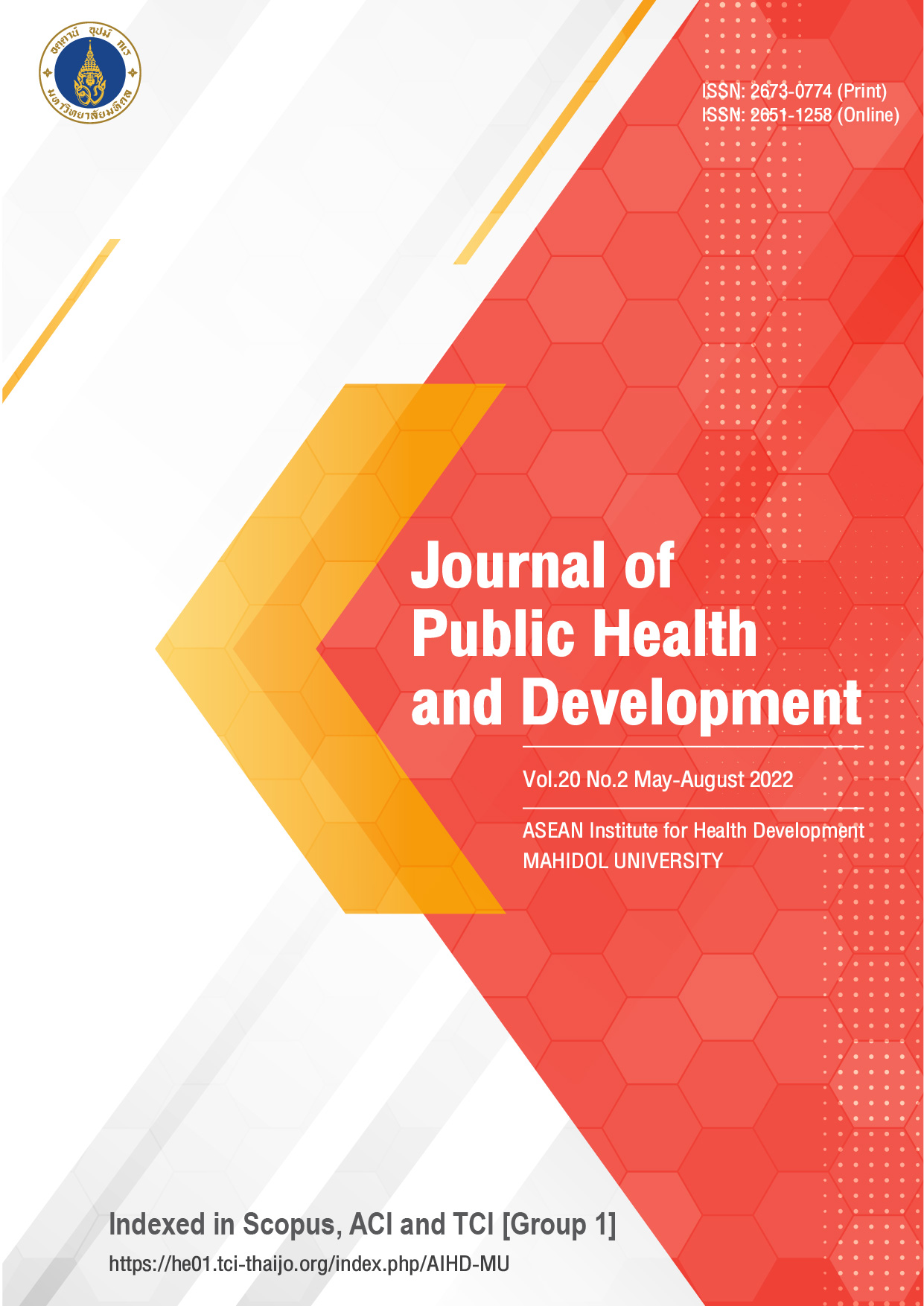Familiarity, Knowledge, Attitude and Willingness towards Genetic Counselling among the South Indian Population 10.55131/jphd/2022/200217
Main Article Content
Abstract
The effect of any kind of genetic disorder is almost irreversible in life, so it is very important to understand these disorders and the modern, effective preventive approaches available to reduce the familial and societal burden. This study aims to measure the awareness of Genetic Counselling (GC) and investigate personal factors like knowledge, attitude, and willingness towards the purpose of genetic counselling among the South Indian population. Individuals from the state of Tamil Nadu, Karnataka, Andhra Pradesh, Telangana, Kerala, and Pondicherry participated in the study. Knowledge score was generated for everyone, ranging from 19 to 42, with which varied results were generated compared to other variables. Four hundred and sixty-seven individuals completed the survey. About fifty-nine percent of the respondents reported familiarity with GC and the main source of knowledge was through media. Positive attitude and willingness towards GC were reported in the population. Knowledge of GC showed a different trend when compared to other studies of similar objectives. The need for more qualified professionals in the field and the inclusion of genetic counselling and testing as a primary preventive measure in government health care sectors will help reduce the burden of genetic diseases in families and society.
Article Details

This work is licensed under a Creative Commons Attribution-NonCommercial-NoDerivatives 4.0 International License.
References
Christianson A, Modell B. Medical genetics in developing countries. Annu Rev Genomics Hum Genet.2004;5:219-265.
Murray CJ, Lopez AD. Measuring the global burden of disease. N Engl J Med. 2013;369: 448-457.
Nicholas JK. Global Burden of Disease, Child and Adolescent Health Collaboration. Child and adolescent health from 1990 to 2015: Findings from the global burden of diseases, injuries, and risk factors 2015 study. JAMA Pediatr.2017;171(6):573-592
Global, regional, national, and selected subnational levels of stillbirths, neonatal, infant, and under-5 mortality, 1980-2015: A systematic analysis for the Global Burden of Disease Study. The Lancet. 2016; 388:1725-1774. Available From https://www.thelancet. com/journals/lancet/article/PIIS0140-6736(16)31575-6/fulltext.
Hunter DJ, & Reddy KS. Noncommunicable diseases. N Engl J Med.2013; 369(14): 1336-1343.
Osawa M, Muto A, Shiraiwa Y, Hirasawa K, Yoshida R, Murasugi H, Shirai Y. Public perceptions of genetic counselling. Intractable Neurological Disorders, Human Genome Research and Society. 1993;226–234.
Maio M, Carrion P, Yaremco E, Austin JC. Awareness of genetic counselling and perceptions of its purpose: A survey of the Canadian public. J. Genet. Couns. 2013; 22: 762–770.
Riesgraf R, Veach P, MacFarlane I, LeRoy B. Perceptions, and attitudes about genetic counselling among residents of a midwestern rural area. J. Genet. Couns. 2015;24(4): 565–579.
Size, growth rate and distribution of population 2011 Report. Government of India [Internet] Available from https://censusindia.gov.in/2011-prov results/data_files/india/final_ppt_2011_chapter3.pdf
Millennium Development Goals–2015 Report. Government of India. Pg:65[internet]. Available from http://mospi.nic.in/sites/default/files/publication_reports/mdg_2july15_1.pdf
Gemmell AP, Veach PM, MacFarlane I, Riesgraf R, & LeRoy BS. “If It Helps, It's Worth a Try”: An investigation of perceptions and attitudes about genetic counselling among southern Manitoba Hutterites. J. Genet. Couns. 2017; 26(6):1357-1371.
Jacobs MF, O'Connor BC, Weldetsadik AY, Tekleab AM, Bekele D, Hanson E, Quinonez SC. Knowledge, and attitudes about genetic counselling in patients at a major hospital in Addis Ababa, Ethiopia. J. Genet. Couns. 2021;30(2):54
National Society of Genetic Counsellors Code of Ethics. J. Genet. Couns.2018; 27:6-8. Available from https://doi.org/10.1007/s10897-017-0166-8
Public attitudes to human genetic information. People’s panel quantitative study conducted for the Human Genetics Commission.2001 [Internet]. Available from http//:www. hgc.gov.uk.
Shaw J, Bassi K. Lay attitudes toward genetic testing for susceptibility to inherited diseases. J. Health Psychol. 2001; 6:405–423.
Singer E, Corning A, Antonucci T. Attitudes toward genetic testing and foetal diagnosis, 1990–1996. J Health Soc Behav.1999;40: 429–445.
Report of World Health Organisation (WHO) consultation on community genetics in low-and middle-income countries. Geneva, Switzerland. 2011 [Internet]. Available from http:// whqlibdoc.who.int/publications/2011/9789241501149_eng.pdf.
Abacan M, Alsubaie L, Barlow-Stewart K, Caanen B, Cordier C, Courtney E, Davoine E, Edwards J, Elackatt NJ, Gardiner K, Guan Y, Huang LH, Malmgren CI, Kejriwal S, Kim HJ, Lambert D, Lantigua-Cruz PA, Lee JM, Lodahl M, Wicklund C. The Global State of the Genetic Counselling Profession. Eur. J. Hum. Genet.2019;27(2):183-197.
Heimler A. An oral history of the National Society of Genetic Counsellors. J. Genet. Couns. 1997; 6(3):315-336.
Resta R. Defining and redefining the scope and goals of genetic counselling. Am. J. Med. Genet. 2006;142C:269–275.






